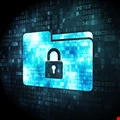Infosecurity Opinions

Comment: EU Data Protection Regulation – Will You Be Ready?
The draft EU Data Protection Regulation has been delayed again. However, companies need to start considering now how to ensure they can comply with key provisions when it does reach final form, or risk being exposed to both regulatory fines and litigation

Government Surveillance: With the Damage Comes Promise
On the heels of his recent keynote at the RSA Conference in San Francisco, Scott Charney, corporate VP of Microsoft’s Trustworthy Computing Group, sat down with our Drew Amorosi to talk about the reputational damage inflicted by NSA surveillance disclosures, and what the industry must do to respond

Comment: Protecting Customer Data from Online Vulnerabilities
Following the Barclays data breach, where thousands of confidential customer files were stolen and sold, Wieland Alge of Barracuda Networks shares his views on the current threats to business data and the areas that must be addressed to keep ahead of new exploitation tactics

Comment: Grand Theft Data – How to Protect an Organization from Breaches
Accepting the premise that data breaches will occur doesn't mean that organizations can’t take preventive measures to reduce the frequency and lessen the severity. Eric Cole of the SANS Institute explains…

Comment: RSA Conference 2014 – Information Security’s Civil War Takes Center Stage
Brian Honan, security consultant and RSA Conference presenter, explains why he has chosen to remain on the event’s speaking roster despite the withdrawal of some peers

Comment: Vulnerability in the Haystack
CISOs need to reconsider their approach to vulnerability and patch management for smarter security intelligence, says IBM’s Martin Borrett

Comment: Securing the Web – Part 2
What’s the value of encryption in securing the web? It makes hackers work for their money, says Qualys’ Ivan Ristic

Comment: Securing the Web – Part 1
Security technology is very close to enabling robust secure web communications, at least for those who have the time to spend in getting it right, says Qualys’ Ivan Ristic

Comment: Managing the SMB Security Challenge
As smaller businesses look to put in place bring your own device (BYOD) responses and boost network security, Jesse Lipson of Citrix looks at the importance of understanding and documenting relevant controls. This is not a one-off task, as the needs of the business, its staff and supporting technologies continuously evolve

Comment: Skills Are More Important than Certifications
Real-world experiences and internal knowledge transfer increase the proficiency of IT security teams, says Hamlin Tallent of Sentek Global

Comment: Cybersecurity Lessons from the Financial Sector
Creating a cybersecurity policy is hard, largely because it’s so difficult to define success. A national cybersecurity initiative should define the goals we want to achieve and provide incentives for the private and public sector to cooperate. According to Matthew Cohen of NT OBJECTives, once that is done, the private sector can do what it does best: compete to provide the most robust and cost-effective solutions to the problem

Through Dark Clouds, a Ray of Light
Increasingly complex threats lead Raj Samani to conclude that the state of data security is worse off than it was a decade ago – but not all is lost, as he explains

Comment: Empower your Consumer to Earn their Trust
Being transparent with consumers and giving them control over their data makes good business sense. Unfortunately there is no one-stop solution. In this article Patrick Nielsen of Evidon looks at the compliance and security challenges of online and mobile advertising, arguing that empowering the consumer is key to commercial success

Comment: Cyber Warfare – The Modern Cold War
Ross Parsell of Thales UK discusses why cyber threats to the world’s critical national infrastructure are the modern-day Cold War weaponry, for which governments and militaries are rapidly increasing their defense budgets

Response: Beware the Nascent Cyber Insurance Market
The Oval Group’s Tom Whipp responds to a recent op-ed piece highlighting aspects of the rather immature cyber insurance marketplace

Comment: Big Data Is the Security Professional’s New Best Friend
Mark Seward of Splunk discusses the changing enterprise security landscape and the role machine data plays in identifying threats and providing greater visibility into system security

Comment: Cybercrime Comes to a Site Near You
The individual computing device is the new perimeter. All hackers need is one vulnerable person, and your entire organization is at risk, observes GreenSQL’s David Maman

Comment: Today’s Biggest Security Risk – Your CEO
Company leadership who underestimate the risks posed to data are standing in the way of stronger, more efficient security, says Clement Cazalot of docTrackr

Comment: Chief Legal Officer will be a Powerful Ally to the CISO of the Future
Guidance Software’s Sam Maccherola outlines how the CLO can provide an added perspective as overall corporate risk manager, when it comes to putting together a water-tight cybersecurity incident response plan that will protect an organization’s legal interests

Comment: Embrace the New EU Data Protection Laws to Keep the Consumer Safe
Proposed changes to the EU data protection laws have attracted some widespread criticism. Tim Critchley of Semafone remembers a similar protest about the introduction of PCI DSS regulations and says it’s time to stop complaining and consider the rights of the consumer



